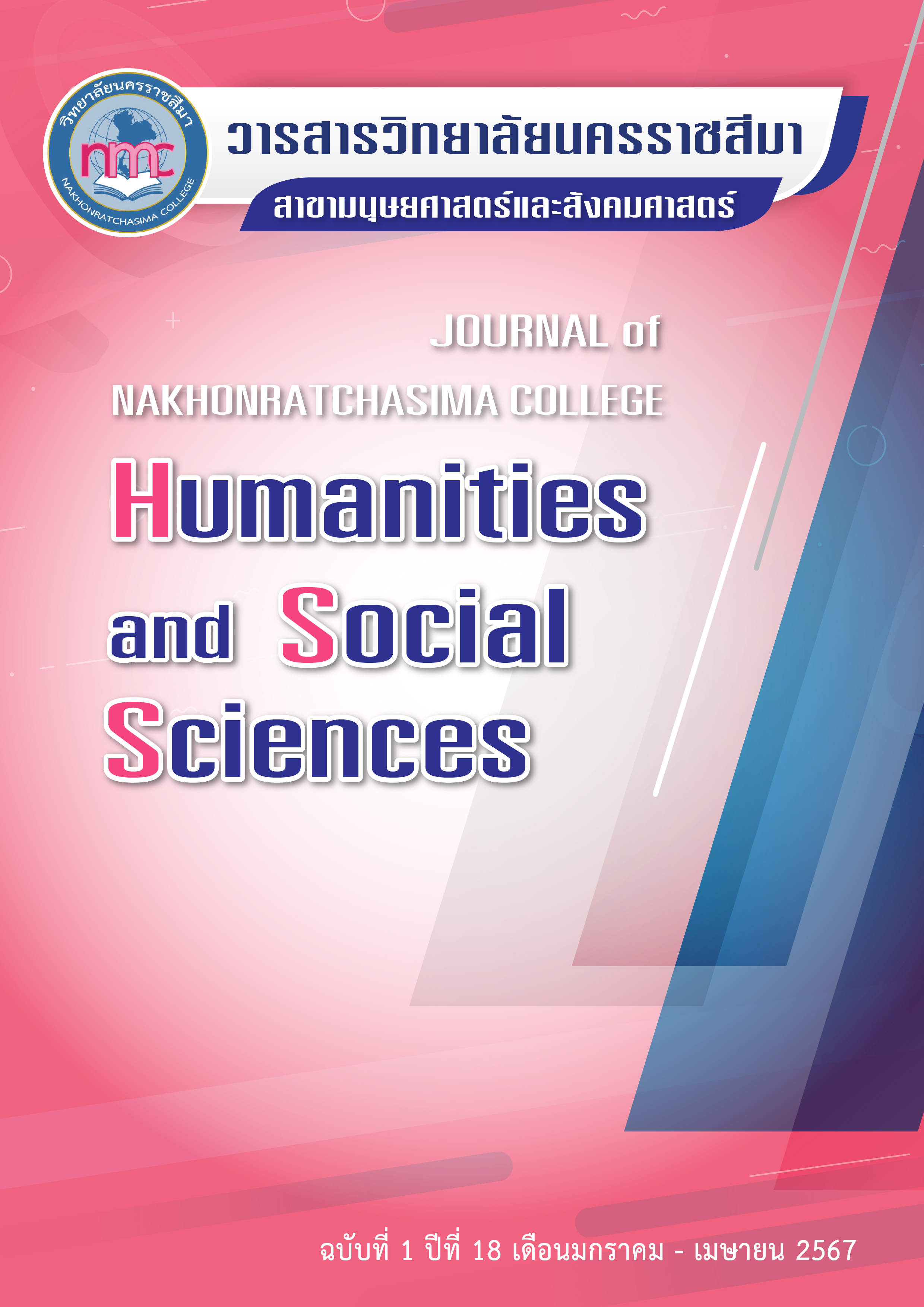Impact of psychological capital and career identity on graduate students’ employability: The mediation of social capital among Shanxi Province of China
คำสำคัญ:
Psychological Capital, Career Identity, Social Capital, Graduate Employability, Mixed-Methods Researchบทคัดย่อ
This study uses a mixed-methods research to explore the relationship between psychological capital, career identity, social capital, and graduate employability in higher education in Shanxi Province, China. The study employs SPSS and AMOS to analyze the survey questionnaire, and NVIVO to analyze the interview questionnaire. the researcher collected 450 sample size by stratified random sampling and that the validity of quantitative research total is 0.927, the validity of qualitative research total questionnaire is 0.95
The study finds that: the respondents have similar views but different focuses on the four factors. The four factors positively and significantly affect graduate employability, and mediate each other. The respondents have different views, experiences, suggestions, and expectations on the factors and their employment relationship. The study provides evidence and insights on the four factors and graduate employability in China, and uses a mixed-methods research, enriching the data and methods. The study is practical for graduates, teachers, institutions, and policy makers, as it suggests how to improve graduates’ psychological, career, social, and employability aspects, and promote their employment.
เอกสารอ้างอิง
Li Keqiang. (2021). Promoting fuller and higher quality employment. China Economic and Social Development Report, 12(3), 1-10.
Li Na, & Wang Xiaodong. (2020). Analysis of Influencing factors of graduate Employability: An empirical study based on Structural equation model. Higher Education Administration, 34(2), 51-59.
Wallis, R. (2021). Graduate employability capitals for the media industries: A conceptual framework for media educators and students. Journal of Media Practice and Education, 22(1), 3-18.
Ngoma, M., & Ntale, P.D. (2016). Psychological capital and career identity as predictors of graduate employability: The moderating role of social capital in Uganda. Journal of Psychology in Africa, 26(5), 413-420.
Liu, J., Zhang, Y., Wang, L., & Liang, Z,. (2019). The relationship between psychological capital, career identity and graduate employability: A Chinese study. Journal of Education and Work, 32(1), 1-15.
Zhang, Y., Liu, J., Wang, L., & Liang, Z,. (2018). The relationship between psychological capital, social capital and graduate employability: A Chinese study. Journal of Education and Work, 31(1), 1-15.
Tavakol, M., & Dennick, R, (2011). Making sense of Cronbach’s alpha. International Journal of Medical Education, 2, 53-55.
Field, A, (2018). Discovering statistics using IBM SPSS statistics. (5th ed.). London: Sage. 686-688
Luthans, F., Avolio, B. J., Avey, J. B., & Norman, S. M, (2007). Positive psychological capital: Measurement and relationship with performance and satisfaction. Personnel Psychology, 60(3), 541-572.
Li Na, & Wang Xiaodong. (2020). Analysis of Influencing factors of graduate Employability: An empirical study based on Structural equation model. Higher Education Administration, 34(2), 51-59.
Zhang, J., Ayala Calvo, J. C., & Manzano García, G, (2019). The influence of psychological capital on graduates’ perception of employability: The mediating role of employability skills. Higher Education Research & Development, 40(2), 293-308.
ดาวน์โหลด
เผยแพร่แล้ว
รูปแบบการอ้างอิง
ฉบับ
ประเภทบทความ
สัญญาอนุญาต
จรรยาบรรณผู้เขียนบทความ
ผู้เขียนบทความต้องรับรองว่าบทความนี้ไม่เคยตีพิมพ์ในวารสารใดหรือสิ่งพิมพ์อื่นๆ มาก่อน ต้องไม่คัดลอกผลงานผู้อื่นมาปรับแต่งเป็นบทความของตน และไม่ได้อยู่ระหว่างการเสนอเพื่อพิจารณาตีพิมพ์ อีกทั้งยอมรับหลักเกณฑ์การพิจารณาและการตรวจแก้ไขบทความต้นฉบับโดยกองบรรณาธิการวารสารวิทยาลัยนครราชสีมา สาขามนุษยศาสตร์และสังคมศาสตร์
บทความทุกเรื่องได้รับการตรวจพิจารณาทางวิชาการโดยผู้ทรงคุณวุฒิที่มีประสบการณ์และมีความเชี่ยวชาญตรงตามสาขาของบทความ ซึ่งผู้เขียนต้องแก้ไขตามคำแนะนำของผู้ทรงคุณวุฒิภายในระยะเวลาที่กำหนด หากไม่เป็นไปตามกำหนดกองบรรณาธิการขอสงวนสิทธิ์และยกเลิกการตีพิมพ์โดยจะแจ้งให้ทราบต่อไป
ข้อความที่ปรากฏในบทความของวารสารนี้เป็นความคิดเห็นของผู้เขียนซึ่งไม่เกี่ยวข้องกับวิทยาลัยนครราชสีมาแต่อย่างใด และกองบรรณาธิการขอสงวนสิทธิ์ในการพิจารณาและตรวจประเมินบทความเพื่อตีพิมพ์ในวารสารของวิทยาลัยนครราชสีมา สาขามนุษยศาสตร์และสังคมศาสตร์



